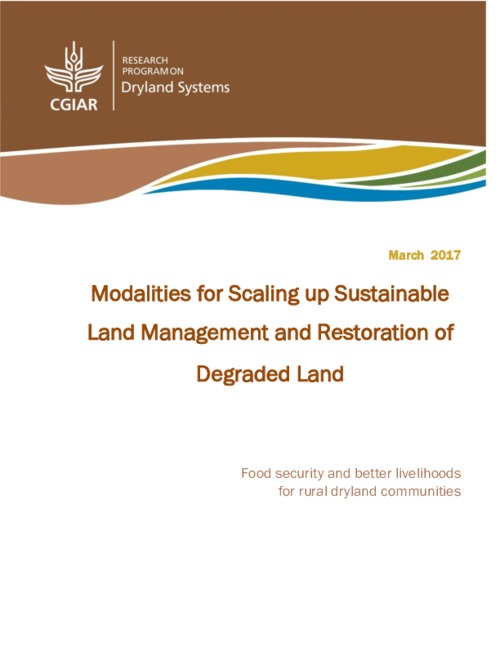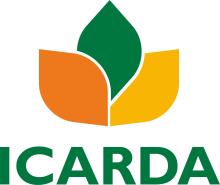Resource information
To tackle inter-connected global challenges of population growth and migration, climate change, biodiversity loss, and degrading land and water resources, changes in land use and management are needed at a global scale. There are hundreds of options that can improve the sustainability of land management and prevent or reverse degradation, but there are almost as many socio-cultural, institutional and policy barriers preventing their adoption at scale. To tackle this challenge, the Consultative Group for International Agricultural Research’s Dryland Systems Program and the UN Convention to Combat Desertification convened an expert group to consider barriers and incentives to scaling up sustainable land management (SLM) and land restoration practices, as part of the first Global Land Outlook. The group reviewed existing frameworks for scaling up relevant interventions across a range of contexts, and identified eight critical success factors: i) adaptively plan; ii) consistently fund; iii) select SLM options for scaling up based on best available evidence; iv) identify and engage with stakeholders at all scales; v) build capacity for scaling up; vi) foster institutional leadership and policy change to support scaling up; vii) achieve early tangible benefits and incentives for as many stakeholders as possible and viii) monitor, evaluate and communicate. Incentives for scaling up were identified for the private sector, farmers and their communities and policy makers. Based on these findings a new framework for scaling up is presented that analyses the contexts in which there is evidence that specific SLM interventions can be scaled up and out, so that scalable SLM options can be screened and adapted to these contexts, piloted and disseminated. This will then help countries achieve land degradation neutrality and comply with the Sustainable Development Goal 15, “Life on Land”.


